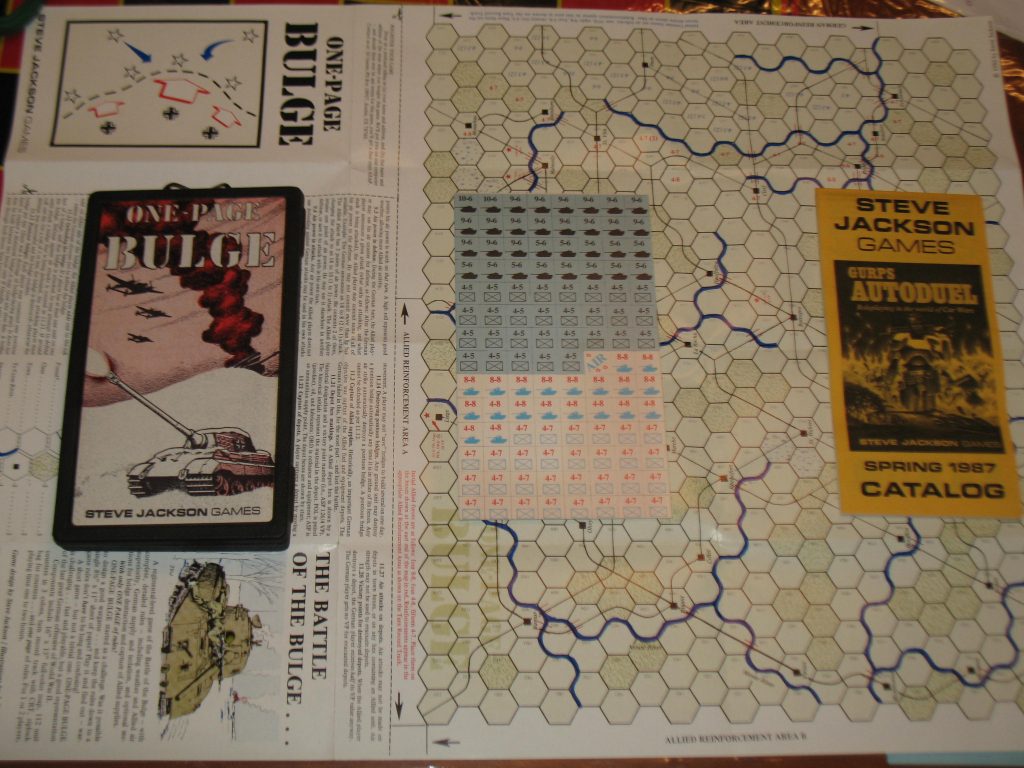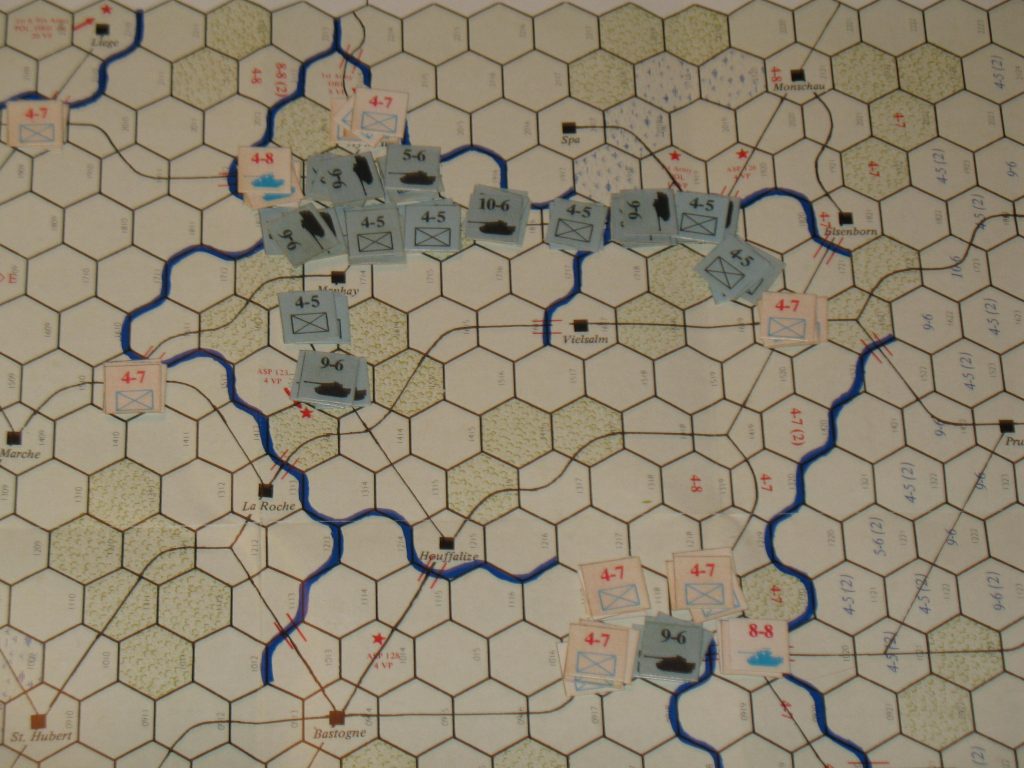 I rarely feel guilty for “punching” a vintage game in order to get it played. But since One Page Bulge comes on ONE PAGE combining map, rules, CRT, turn track, designer’s notes, and historical information. On one large sheet of paper. That this game pioneered the exact format that would launch the Car Wars franchise only makes it harder. (My first games purchase ever had me cutting apart the road sections and reference charts of the classic vehicular combat game.)
I rarely feel guilty for “punching” a vintage game in order to get it played. But since One Page Bulge comes on ONE PAGE combining map, rules, CRT, turn track, designer’s notes, and historical information. On one large sheet of paper. That this game pioneered the exact format that would launch the Car Wars franchise only makes it harder. (My first games purchase ever had me cutting apart the road sections and reference charts of the classic vehicular combat game.)
How does it play?
Well, the Germans declare scads of attacks on the opening turn and you might wonder if the game will be a slog. In our game, things quickly settled down to where there were only one or two combats a turn.
But those combats! You can have up to four counters stacked in a hex. You add the total attack strength and divide it by the total defense strength. You can’t just use a calculator and be done with it either because the American player will want to know how little of his air power he can spend in order to knock the odds down a level. And even then you’re liable to get very minimal outcomes: “no effect”, “exchange”, or “attacker retreat.” If the target is holed up in a city, you may as well not bother to attack until you’ve surrounded him because nothing much is going to happen until then anyway!
But that’s all mechanics. What’s the game really about?
Well, if you are familiar with the history, you already know. The superior German units are smashing the Americans and the Americans are trying to slow them down while they wait for reinforcements. The Germans want to get as many units as possible on the other side of the board. But coordinating the assault is not trivial. German units that become “isolated” fight at half strength and pick up a movement penalty.
This last nuance is the soul of One Page Bulge. The Germans have a really impressive army. But they collectively have sort of a weak underbelly. If a significant American force can get behind them and occupy key cities, then the battle can be lost for them in an instant! So the Germans have to play aggressively while also defending the roads that connect them back to their reinforcement area.
This is a MicroGame, yes. But that does not mean a playing time of half an hour. This really is a “real” wargame in a small package and it has a lot going on with it. You might think it would come off as an exercise in showing just how much can be done with very little. But it doesn’t come off as mere grandstanding. It just plain works. And if you thought the guidance presented in Game Design: Theory and Practice was just a bunch of talk, then you really need to see this. It makes all of that theory snap into focus.
My only complaint with this game is that I simply do not feel like getting those “wargamer” tweezers that are the inevitable consequence of monster games like Unconditional Surrender. I play all kinds of games and this violation of the “don’t make me think” principle just wears me out. I do not want to bring play to a halt just to count up the factors in a hex for the fourth time. I also don’t want to lose because I didn’t count them up, either. At this point, a table-sized map sheet that would allow everything in a stack to be visible all the time is about the only way you’re going to convince me to really play this sort of game again.

If the exchange result is anything like the Avalon Hill combat results table it can be devastating to an attacker when losing more units than you bargained for Think EXCH was a 1 in 6 chance even at 3-1 odds
Going over AH’s Waterloo for a WW post and the need to manually figure odds does get tiresome
Just had a thought concerning the continuos factoring necessary to play one of the old board games and wonder how many times one must “stop to think” in a RPG? My guess it is a matter of preference.
That being said, deconstructing stacks of units to figure odds is tedious.